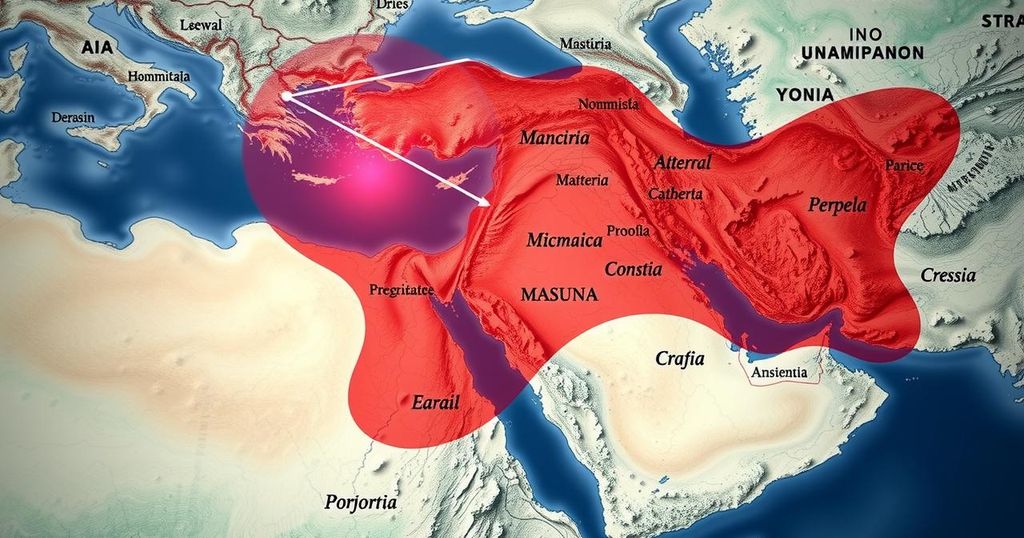The Israeli Ministry of Foreign Affairs has sparked a diplomatic uproar by releasing a map claiming historical territorial rights for Israel that includes parts of Palestine and neighboring countries. Arab nations, including Jordan, Qatar, and the UAE, have condemned this map as a violation of sovereignty, expressing concerns over its implications for regional peace and stability. Several governments have called for international action against Israel’s expansionist claims.
A significant diplomatic controversy has emerged following the Israeli Ministry of Foreign Affairs’ release of a new map claiming extensive territorial rights, encompassing Palestine and parts of Jordan, Lebanon, and Syria. This map, disseminated via Arabic-language social media platforms, portrays Israel as a biblical state and asserts historical claims dating back 3,000 years. Many Arab nations have vehemently opposed this depiction, reiterating their condemnation of Israel’s expansionist policies and the inclusion of occupied territories. The criticism has been particularly pronounced from Jordan, the United Arab Emirates (UAE), and Qatar, each characterizing the map as a violation of international law and sovereignty. Jordan’s Ministry of Foreign Affairs has condemned the portrayal as misleading and stated it obstructs the prospect of a Palestinian state. Qatar has labeled the map as a blatant infringement of international norms, calling for international intervention against Israel’s expansionist motives. Likewise, the UAE has denounced the undertaking, asserting it undermines legal frameworks related to the occupied Palestinian territories, thereby jeopardizing regional peace.
The underlying issue revolves around the Israeli government’s ongoing claims over territories that are historically and currently disputed. The publication of this map serves as a provocative reminder of these claims, contributing to regional tensions and reaffirming the steadfast opposition of neighboring countries and the Palestinian authority. The situation presents an acute illustration of the complexities surrounding territorial sovereignty in the context of historical narratives, amplifying calls for diplomatic resolutions and adherence to international law regarding occupation and statehood.
In summary, the controversial release of a new map by Israel claiming extensive territorial rights has incited widespread condemnation from several Arab nations, particularly Jordan, Qatar, and the UAE. Each country has articulated their concerns regarding the implications of such a depiction on regional stability and peace. The situation highlights the persistent tensions surrounding territorial claims and underscores the critical need for international diplomatic engagement to address these long-standing conflicts.
Original Source: www.india.com






